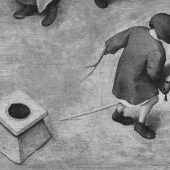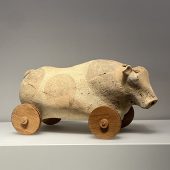If the object of study of microethology is the event (and often entails the zooming on particularly rich sub-events for close attention), then how can the selection of particular events or sub-events from the ‘flux of varying viscosity’ or ‘plane of immanence’ be accounted for in terms other than those of intuition or unreflective attraction? I find the term ‘complex’ bouncing around; the sub-event or moment suggests itself as object through its contingent containment or corralling of heterogeneous phenomena, a particular richness of comings-together and collusions of salient bodies. Latour (in Pandora’s Hope, p.304) warns against the contemporary misuse of the term complex however, arguing that it tends to be applied to the merely complicated.
“Complex’ will signify the simultaneous presence in all interactions of a great number of variables, which cannot be treated discretely. ‘Complicated’ will mean the successive presence of discrete variables, which can be treated one by one, and folded into one another in the form of a black box. Complicated is just as different from complex as simple is.”
Thus, the complex is deployed in its anthropological (and perhaps, more remotely, its Freudian) sense. I think, then, that the term does usefully pertain to microethological events, objects that present themselves through their collusion of heterogeneous salient phenomena.
The event for microethology is a small but significant intensification of the technocultural milieu.



